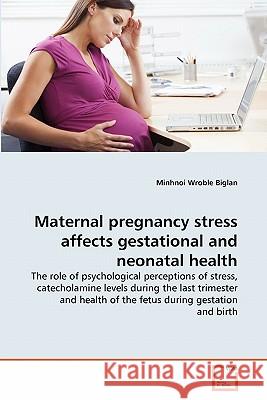Maternal pregnancy stress affects gestational and neonatal health » książka
Maternal pregnancy stress affects gestational and neonatal health
ISBN-13: 9783639309430 / Angielski / Miękka / 2010 / 160 str.
The environmental demands during prenatal development have been implicated in the health issues in childhood and adulthood. Traditionally, women and physicians have focused attention on the ingestion of foods and drugs during pregnancy. However, psychosocial factors such as maternal stress may be as harmful as many of the drugs that have been the focus of prenatal care information (i.e., nicotine in cigarettes, cocaine, and caffeine) as many of the drugs that pregnant women are to restrain from consuming during pregnancy appear to cause changes in maternal chemistry in such a way to resemble a psychosocial stress response. Therefore, the current research examined psychological and physiological response to stress, independent of consumption of drugs like nicotine and caffeine. Data suggest that higher levels of norepinephrine and epinephrine at the beginning of the third trimester were associated with higher birth weight and shorter birth length, respectively. Although the data was limited in size of participants, the added evidence helps to support a role of the stress-response system (Sympathetic and HPA-axis) in the regulation and health of the fetus and neonate.











